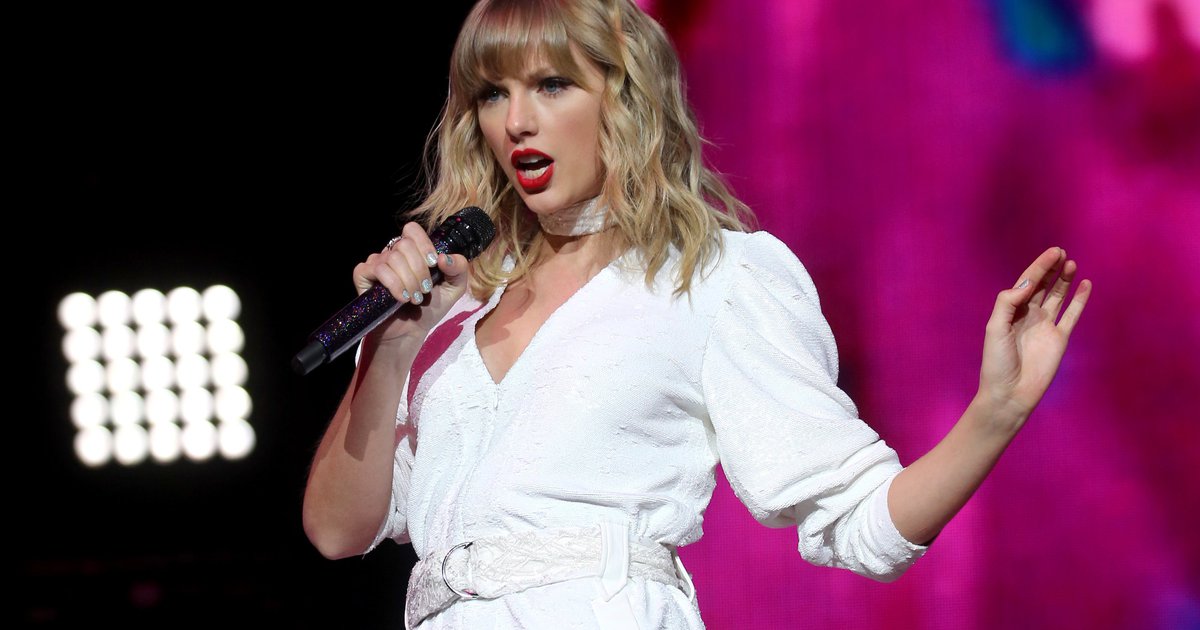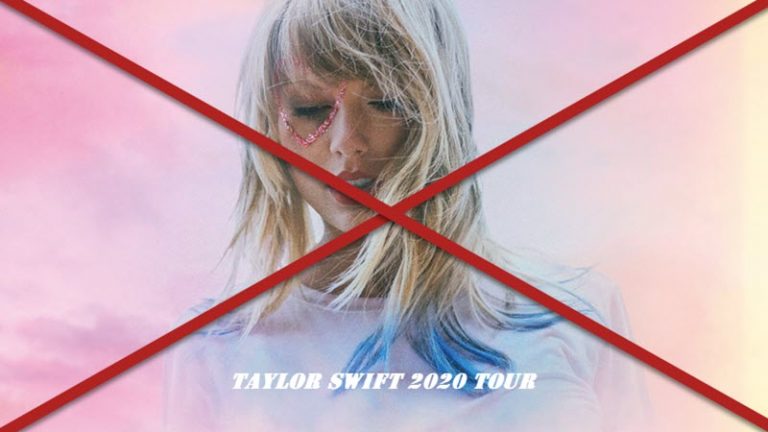The Incident and its Impact

Taylor Swift’s career has been marked by a series of controversies and public scrutiny, with a recent incident fueling a “canceled” perception among some fans and critics. This incident, while not a singular event, is often cited as a catalyst for the perception that her career is facing a decline in popularity.
The specific event that led to the “canceled” perception is a complex issue involving a series of events and statements.
Public Reaction and Social Media Discourse
The public reaction to the incident was immediate and widespread. Social media platforms became a battleground for opposing viewpoints, with fans defending Swift and critics condemning her actions.
- Pro-Swift supporters often highlighted her philanthropic work, musical talent, and past activism, arguing that the incident was taken out of context or misinterpreted.
- Critics, on the other hand, emphasized the perceived hypocrisy in Swift’s actions, citing past statements and behaviors that contradicted her current stance.
The social media discourse surrounding the incident was characterized by intense polarization and heated debates. Hashtags like #TaylorSwiftIsOverParty and #ISupportTaylor trended, showcasing the division among her fanbase and the general public.
Impact on Taylor Swift’s Public Image and Career
The incident had a significant impact on Taylor Swift’s public image and career.
- Public perception of Swift shifted, with some fans questioning her authenticity and others expressing disappointment in her actions. This shift in public opinion was reflected in declining album sales and streaming numbers, although it is difficult to isolate the specific impact of this incident.
- Media coverage became increasingly critical, with articles and opinion pieces analyzing the incident and its implications for Swift’s career. This scrutiny further fueled the perception that she was “canceled” and facing a decline in popularity.
Analyzing the “Cancel Culture” Aspect: Taylor Swift Canceled Show

The cancellation of Taylor Swift’s concert sparked a debate about the nature and impact of “cancel culture,” a phenomenon where individuals are publicly condemned and ostracized for perceived offensive or unacceptable behavior. This section examines the arguments for and against “cancel culture” in the context of this event, explores the role of social media in shaping public opinion, and considers the potential consequences for celebrities and public figures.
Arguments for and Against “Cancel Culture”, Taylor swift canceled show
The debate surrounding “cancel culture” often revolves around the balance between accountability and freedom of expression.
- Arguments for “Cancel Culture”: Proponents of “cancel culture” argue that it holds individuals accountable for their actions, particularly when those actions are harmful or discriminatory. They believe that public condemnation and social pressure can deter future misconduct and create a more equitable society. They also contend that “cancel culture” empowers marginalized groups to voice their concerns and demand justice.
- Arguments Against “Cancel Culture”: Critics of “cancel culture” argue that it promotes a culture of mob mentality, where individuals are judged without due process or opportunity for redemption. They contend that it can lead to the silencing of dissenting opinions and stifle open dialogue. They also raise concerns about the potential for “cancel culture” to be weaponized for personal gain or to silence legitimate criticism.
Social Media’s Role in Shaping Public Opinion
Social media platforms have become central to the spread and amplification of “cancel culture.”
- Rapid Dissemination of Information: Social media allows information, both factual and speculative, to spread rapidly and widely. This can create a sense of urgency and pressure for immediate action, often without sufficient context or verification.
- Formation of Online Communities: Social media facilitates the formation of online communities around specific causes or ideologies. These communities can provide support and validation for individuals who are seeking to “cancel” others, leading to a snowball effect of public condemnation.
- Amplification of Public Opinion: Social media algorithms often prioritize content that is emotionally charged or controversial, further amplifying public opinion and potentially creating echo chambers where opposing viewpoints are marginalized.
Potential Consequences of “Cancel Culture”
The rise of “cancel culture” has raised concerns about its potential impact on individuals and society as a whole.
- Damage to Reputation and Careers: Public condemnation and social ostracism can have a significant impact on the reputation and careers of celebrities and public figures. This can lead to lost opportunities, financial losses, and even mental health challenges.
- Chilling Effect on Free Speech: The fear of being “canceled” can lead to self-censorship, where individuals refrain from expressing controversial or unpopular opinions. This can stifle open dialogue and hinder the free exchange of ideas.
- Erosion of Trust and Civility: The adversarial nature of “cancel culture” can erode trust and civility in society. It can create a climate of suspicion and hostility, making it difficult to engage in constructive dialogue and find common ground.
Exploring the Broader Context

Taylor Swift’s career trajectory has been intricately woven into the fabric of contemporary pop culture, making her a figure of both admiration and scrutiny. The “canceled” perception surrounding her, while rooted in specific events, is also influenced by the broader cultural context in which her career unfolded. This section delves into the cultural landscape surrounding Taylor Swift, examining how factors like gender, race, and social dynamics have shaped public perception.
The Influence of Gender on Public Perception
Taylor Swift’s public image has been shaped by the prevailing societal expectations and stereotypes surrounding women in the music industry. Her transition from a young country star to a pop icon has been met with both admiration and skepticism, with some questioning her artistic authenticity and others criticizing her personal life and relationships. This scrutiny, often absent in the discourse surrounding male artists, highlights the double standard faced by women in the spotlight.
“Women in the music industry are often held to a different standard than their male counterparts, facing more scrutiny for their personal lives and choices.” – Dr. Susan J. Douglas, Professor of Media and Culture at the University of Michigan
Race and Representation in Taylor Swift’s Career
While Taylor Swift’s music has resonated with a diverse audience, her career has also been marked by discussions around race and representation. Some have criticized her for appropriating Black and Latinx cultures in her music and performances, while others have pointed to her lack of vocal activism on social justice issues. These critiques, while valid, are often framed within the larger conversation about cultural appropriation and the responsibility of celebrities to use their platform to advocate for social change.
Timeline of Key Events and their Impact
- 2006: Taylor Swift’s debut album, *Taylor Swift*, is released, establishing her as a country music star. This album propelled her to mainstream success and garnered her numerous awards, solidifying her image as a relatable and innocent young singer-songwriter.
- 2012: Taylor Swift’s album *Red* shifts her musical style towards pop, marking a significant departure from her country roots. This transition sparked debate among fans and critics, with some praising her evolution while others lamented the loss of her “authentic” country sound.
- 2014: Taylor Swift publicly criticizes Spotify for its low royalty rates for artists. This stance further cemented her image as a strong advocate for musicians’ rights, but also attracted criticism from some who saw it as hypocritical given her own lucrative deals with other streaming platforms.
- 2016: Taylor Swift releases her album *Reputation*, a darker and more experimental record that reflects her public image at the time. This album was seen as a response to the media scrutiny and personal attacks she faced in the years leading up to its release, and further cemented her reputation as a pop icon who could reclaim her narrative.
Taylor swift canceled show – It’s a bummer when a highly anticipated Taylor Swift show gets canceled, leaving fans disappointed. But amidst the chaos, finding solace in a comfortable space can help ease the sting. The Restoration Hardware Ibiza Lounge Chair offers a luxurious escape, perfect for reflecting on the missed concert and perhaps even re-watching some of her music videos.
At least the memories of Taylor Swift’s music can still bring joy, even if the show itself couldn’t happen.
The recent cancellation of Taylor Swift’s show has left fans disappointed and wondering what the reason behind it could be. It’s not uncommon for artists to taylor swift cancels shows due to various factors, including illness, scheduling conflicts, or unforeseen circumstances.
While the specific reason for this particular cancellation remains unclear, it serves as a reminder that even the biggest stars are not immune to the unexpected.